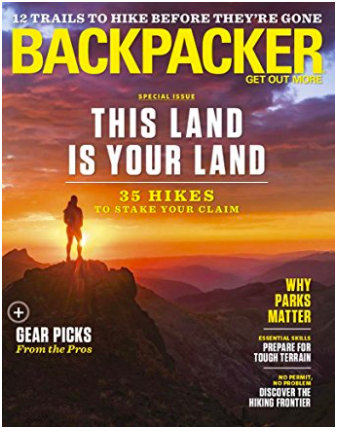Whose Barbecue Is This, Anyway?
Late last month, a confrontation at the site of a family cookout in Oakland exploded onto the national news. On a sunny weekend day, a group of black Oakland residents set up for an afternoon of fun, barbecuing together in the park surrounding Lake Merritt. As they lit the grill, they were approached and then harassed for two hours by a white woman who called the police, claiming it was illegal to have a charcoal barbecue in that area of the lake. After video of the incident went viral, the woman was identified as Dr. Jennifer Schulte, reported to be, “ironically,” an environmental scientist at Stanford University.
Unfortunately, this interaction is more typical than ironic when it comes to the intersection of race and the environment. Since their inception, the environmental conservation and outdoor education communities have been both exclusive and exclusionary. Seventy-four percent of outdoor recreation participants are white, 46% make over $75,000/year, and 59% of youth outdoor recreation participants are boys (The Outdoor Foundation Outdoor Participation Report, 2016). The leadership of the outdoor and environmental industries reflects similar inequities: more than 70% of the presidents and chairs of the board of conservation organizations are male, and people of color occupy only 12% of staff positions in environmental organizations (The State of Diversity in Environmental Organizations: Mainstream NGOs, Foundations & Government Agencies, 2014).
The fact that an environmental scientist at one of this country’s most elite institutions felt entitled to criminalize a long-standing community tradition of gathering in a public park brings into sharp focus both the global history of environmental conservation, and the local crisis of gentrification in the San Francisco Bay Area. Implicit in this confrontation about barbecuing in Oakland is the debate over who owns and controls open space. Because white people have historically positioned ourselves as the gatekeepers to the outdoors, the issue of who has access to nature, and under what conditions, depends on our ability and willingness to actively confront systematic exclusion.
As the Executive Director of GirlVentures, I’m responsible for guiding an organization dedicated to facilitating the development of next generation leadership and to ensuring nature is accessible to everyone and conserved for future generations. So what’s the role of white people in industry leadership, including myself, in changing the relationship between environmental conservation and social justice?
Whether we are working in Yosemite National Park or urban greenspaces, the leadership of our industry has an obligation to correct past and present injustices relating to control over natural resources, rather than punitively policing access in the tradition of over 500 years of colonization. In order to promote equity in environmental conservation, we must critically examine mainstream assumptions about diversity, and re-center power and representation around a framework of radical inclusion.
Perhaps most importantly, we must accept and celebrate the responsibility to change industry norms, and actively create space for inclusive leadership and diverse voices. It’s not enough to sit down, move over, and practice active listening (although that’s a good start). It’s also essential to use positions of leadership to highlight and address injustice, rather than depending on marginalized voices to speak out in isolation.
This week, two major conferences in Oakland will bring the intersection of race and the environment into sharp focus: The Children & Nature Network (C&NN) Summit, and PGM ONE. These events present opportunities for communities engaged in environmental conservation to move conversations and action forward towards a more progressive future where social and environmental justice advance together. As a participant in C&NN’s Summit, a sponsor of PGM ONE, and organizer of a PGM ONE panel on centering girls of color in the outdoors, GirlVentures is contributing both resources and a platform to the movement for inclusion, and we hope you’ll join us. Pass a plate: this barbecue is for everyone.


